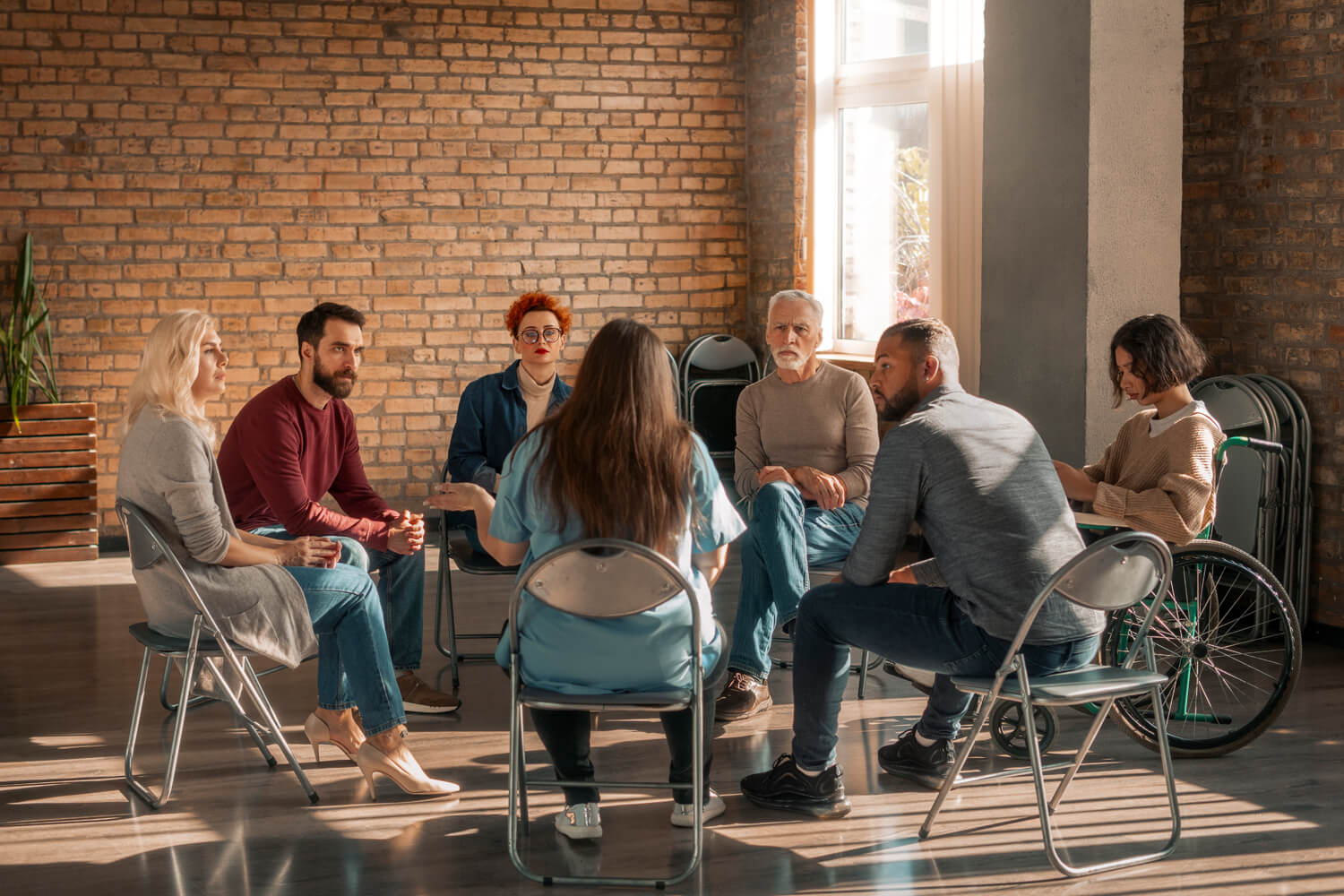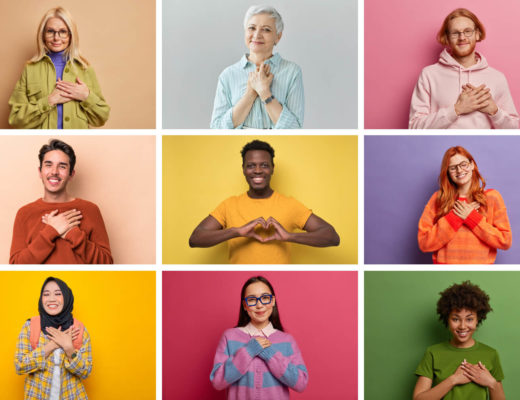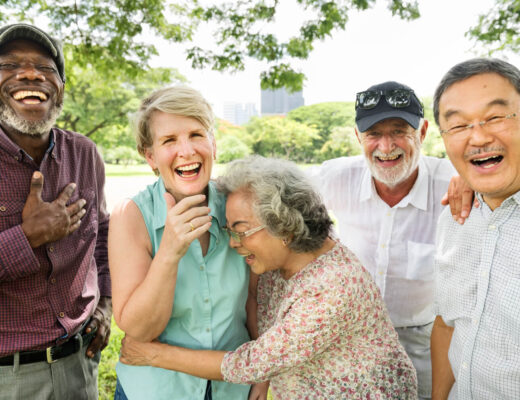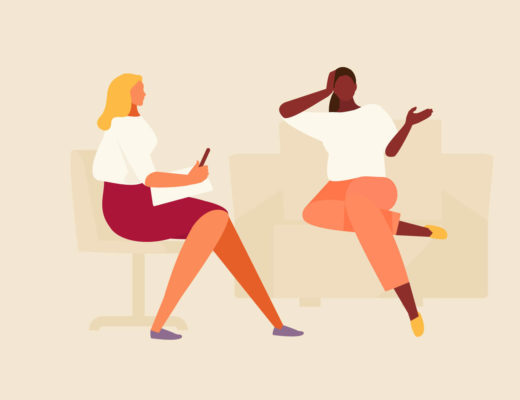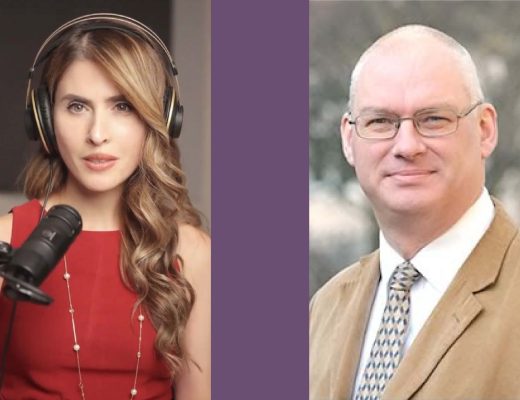The benefits of group therapy are sometimes understated. But in many cases, group therapy is, in fact, as effective as individual therapy. It is also more efficient because a therapist can help multiple people at once. This is especially practical since there is more demand for therapy than there are therapists available (APA, 2023). For this reason, group therapy is often called a “triple-E treatment” (it’s effective, it’s equivalent to individual therapy for most conditions, and it’s efficient) (Whittingham, 2023).
What is group counselling?
Group counseling is a specific type of mental health treatment where two to fifteen people meet under the guidance of a licensed mental health professional. The clients within the group work through their issues in a safe and supported environment. Group counseling is helpful as a stand-alone therapy and as a supplement to individual therapy.
The way group therapy is conducted depends on the mental health condition of those in the group and the clinical approach and style of the therapist (Cherry, 2024). For example, groups could have a free-form type of dialogue or the therapist could have a specific plan to follow such as having participants practice new skills with each other. Socializing skills, emotional regulation and active listening are some of the skills you can learn in a group.
The types of group therapies include the psychoeducational approach, cognitive behavioral group therapy, interpersonal psychotherapy, skills development groups and psychodynamic group therapy.
For example, cognitive behavioral group therapy aims to challenge and change inaccurate or negative core beliefs and behaviors, which is why it is particularly beneficial for people with anxiety disorders and depression, among others. Psychoeducational groups provide participants with a better understanding of their disorders and behaviors. This could be useful for people with phobias (Fritscher, 2023). Interpersonal groups focus on relationships and social support in relation to mental health, based on the notion that interpersonal relationships affect behaviors and have evolved over time. Techniques like role-playing and problem solving exercises help identify and address dysfunctional interpersonal patterns (Jeffery, 2024).
While some groups focus on a specific problem (substance abuse, depression, anger management, grief, ADHD, sexual abuse, PTSD), others are dedicated to the general enhancement of participants’ social skills (Sills, 2023).
Activities to do in group therapy include
- Icebreaker activities
- Sharing activities (group members ask each other questions)
- Expressive writing activities (to explore feelings connected to experiences)
- Goal visualization activities and healthy brainstorming
- Gratitude activities (Cherry, 2024)
- Statement position maps (map out causes and effects of a problem)
- Role-playing (acting out and solving problems in healthy ways; Madeson, 2023).
Why Does Group Counselling Work?
- Safety, Support, Solidarity
Group counselling offers people a unique opportunity to learn more about themselves and their relationships in a safe, supportive environment. It enhances social support and provides new perspectives to consider. Realizing that you share similar struggles with other people can reduce feelings of shame and hopelessness, and offer a sense of solidarity (APA, 2023). It reduces stigma and can make you feel less alone in your struggle.
- Role Modelling & Encouragement
Often, being in a group means you will meet diverse people who are at different points in their healing journey. They may act as a role model for you and show you positive, healthy behaviors, habits and attitudes. Sometimes group counselling can be even more effective than individual therapy because seeing the treatment work successfully for others in the group can inspire personal growth and development (Cherry, 2024). Participants can also teach each other practical new behaviors, such as how to disagree without antagonizing others.
- Behavioral Insights
Some therapists think that treating multiple patients at once is better than treating each one separately. Observing how you interact with the group can offer the group therapist better insights about your behavior, which may help pave the way for more effective treatment. In an open-dialogue group, “clients will, over time, automatically and inevitably begin to display their maladaptive interpersonal behaviors in the therapy group” (Yalom, 2020). Patterns and tendencies in behavior, such as being chronically hostile, self-critical or overly nervous, can quickly manifest themselves in a group setting.
Effectiveness
As the American Psychology Association (APA; 2023) summarized, “In a recent series of 11 meta-analyses encompassing 329 studies comparing group with individual therapy, group therapy was found effective for depression and bipolar disorders, schizophrenia, anxiety disorders, social anxiety disorder, panic disorders, obsessive-compulsive disorder, posttraumatic stress disorder, eating disorders, borderline personality disorder, substance use disorders, and chronic pain” (Pappas, 2023).
Group Therapy vs. Group Counselling vs. Support Groups
In the U.S., “group therapy” and “group counseling” are used interchangeably but some countries, like the UK, differentiate between the two.
- Group counselling is a more short-term commitment for short-term problems.
- Group therapy is for pervasive, long-term behavioral issues and psychological disorders.
- Support groups are different because they are usually led by a peer/layman who shares the group’s common experience. Support groups focus on maintaining positive change in behavior and they usually have no fixed end-point (Sills, 2023).
Group counselling is meant to provide you with the necessary tools and coping strategies to address and modify thoughts, feelings, and behaviors that undermine quality of life and impede self-development. Support groups help with ongoing circumstances such as parenting a developmentally disabled child or managing fertility problems (Sills, 2023).
Final thought
Keep in mind that you may need to try different groups and therapists before effective treatment can begin. Finding the right fit to help your individual needs is fundamentally important. For group therapy to work, you must be willing to share personal experiences, thoughts, feelings in the presence of others. If you are a sensitive person who suffers extreme anxiety in a group setting, then individual therapy would be a more effective treatment option. Remember that group counselling also means less focused attention on each individual client which may affect the level of intervention.
A person experiencing overwhelming events and who is in need of immediate attention, may not be a good candidate for group therapy.

